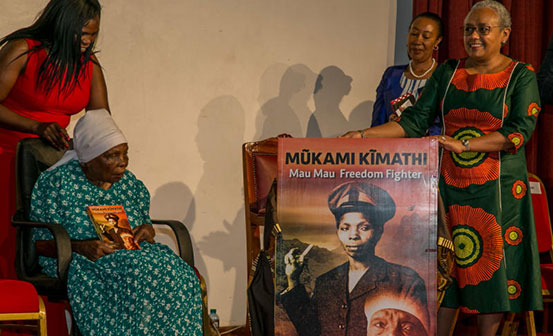×
The Standard e-Paper
Home To Bold Columnists

Widow of hanged freedom fighter Dedan Kimathi rebuffed political overtures from Kenya’s founding President Jomo Kenyatta and founding Vice President Jaramogi Odinga.
In her new book, “Mukami Kimathi: Mau Mau Freedom Fighter”, launched Friday, Mukami Kimathi tells of the pain of Mau Mau land dispossessions, the shame of post-independent bickering and the joys of living with colonial government’s worst enemy — Dedan Waciuri Kimathi.